Apple Cider Vinegar (ACV) for chickens has had some very good press over the last ten years. There has been lots of research done where ACV has been added to one group of chicken’s water and the compared against the other ‘control’ group.
Cider Vinegar for chickens is acidic and it is this acidity that means ACV is a mild anticeptic and will kill a number of germs. In addition to this, it is claimed to act like a mild antibiotic. Antibiotics kill infectious bacteria that can cause disease in chickens.
In addition to these benefits, Apple Cider Vinegar is full of vitamins, minerals and trace elements that are beneficial to your chickens but you do have to be careful where you buy ACV from – don’t go rushing off to Tesco just yet!
Apple Cider Vinegar has been proven to help chickens with stress which is one of the main contributors to their immune system lowering and letting in disease. I use ACV during the following times:
- Moving house
- Introducing new birds
- If snow falls on the ground (a stressful change in environment for chickens)
- After a fright – eg fox attack
- After injury
- Once per month for a week for the health benefits
You can buy ACV from Amazon
Dillution Rate of Apple Cider Vinegar
ACV should be dilluted at a rate of 2% in fresh drinking water. This is the same as saying 20ml in every litre. Make sure you are using plastic water containers because it is acidic and will corrode galvanised containers. The normal rate at which to give to chickens in order to be beneficial is for one week per month. If you choose the first week of every month, it will be easier to remember. Chicks and growers can be given 0.5% ACV in water or 5ml per litre.
Do you have any information on Apple Cider Vinegar? Please leave me a comment below.

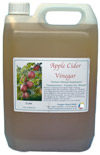
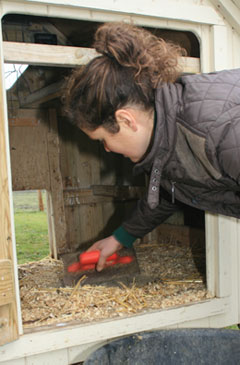
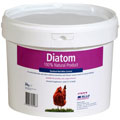
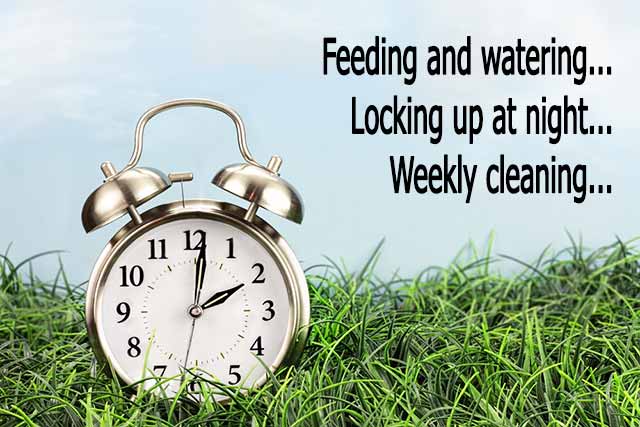

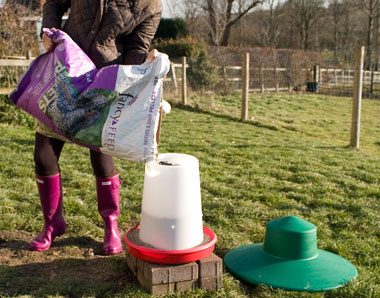
Can I put it on my chips ?
yes you can use it on chips , as well as my hens drinking it my wife and i
take a glass of water with two teaspoons of ACV each morning,is the best
morning drink i have tasted.
Yes, the ACV that is for human consuption (e.g. from health shops) can be taken, however the equine / poultry versions of ACV are not for our consumption.
I give my girls ACV because I read somewhere that the acidity helps to keep the hens worm free. Is this true? Will I still need to worm them regularly? I always add ACV to their plastic drinkers and they seem to prefer it to the non-ACV water from the galvanised drinker. ACV also gets added to their vegetable mash most afternoons so their digestive system is permantly acidic. Would this do any long-term damage?
Hi
I put ACV in my hens water every time i refill them, i have seen no problems with them in over a year, i only use supermarket ACV as it’s only 98p a bottle! and i use Vermex every 3 months. I have 10 healthy hens who are producing a good volume of eggs thus far. But i am now moving toward rearing upto 50 hens for both egg production and meat to be sold only to family and friends, would i need to get these vaccinated? and if so what are the costs involved?
Supermarket ACV is refined and pasturised – this kills the good bacteria which you want to help them in the gut. ACV from equine stores or from poultry suppliers is unrefined and ‘natural’ so will have far greater bacterial benefit.
I would be careful with using only herbal products, without a wormer. Their claims are good and I use one myself between worming but I have seen birds that upon PM, the gut has been impacted with worms where the owner has thought they were worming using one of these herbal products. Personally, I believe they help make the gut an unpleasant environment for worms but cannot replace a chemical wormer if you have a confirmed case of worms. If in any doubt, if you don’t want to use a licensed wormer (Flubenvet) then do get a worm count done. As well as the health implications for your birds when not worming correctly, finding a worm inside an egg is enough to put you off eggs for life!
See the rules and regulations section – for 50 hens you need to register with Defra. The Defra website has more information if you are going to put meat into the food chain. The rules around table birds / slaughter and chilled storage are fairly major for a small producer. You will need to invest in a stunner for killing birds for example costing £500-£700, dispose of the blood and waste through approved channels and the list goes on. If you only eat the birds yourself, you’ll probably be ok but check the Defra Website.
For eggs: technically, if you are selling them packed or into the food chain, I believe you would need a producer number and have to go through a registered packing station to grade eggs and candle them for blood spots etc. If you sell eggs ‘off the gate’ you can have mixed sizes on a tray and let people pack them into (new) egg boxes themselves. You must not call them anything like Organic or large or class A or anything like that though.
Hi I give ACV to my horse and my dogs. I have chickens and one has severe scaly mite, I was wondering if adding ACV to her water would help as well as the painting her legs with topical stuff?
I don’t know. I doubt it will do much for scaley leg.
Hi there. I love your site. I’m learning as much as possible before getting my chickens next year. I’m so excited. You said you give ACV in the listed events above but for how long in these situations should the ACV be given? A week? Also you say moving house, so would it be a good idea to give it to my new girls the first week I bring them home? Thanks
I give my Hens ACV for 1 week a month. Some people give it all the time, it doesn’t harm.
I always use ACV when getting new hens – so yes, I’d say it’s a good idea.